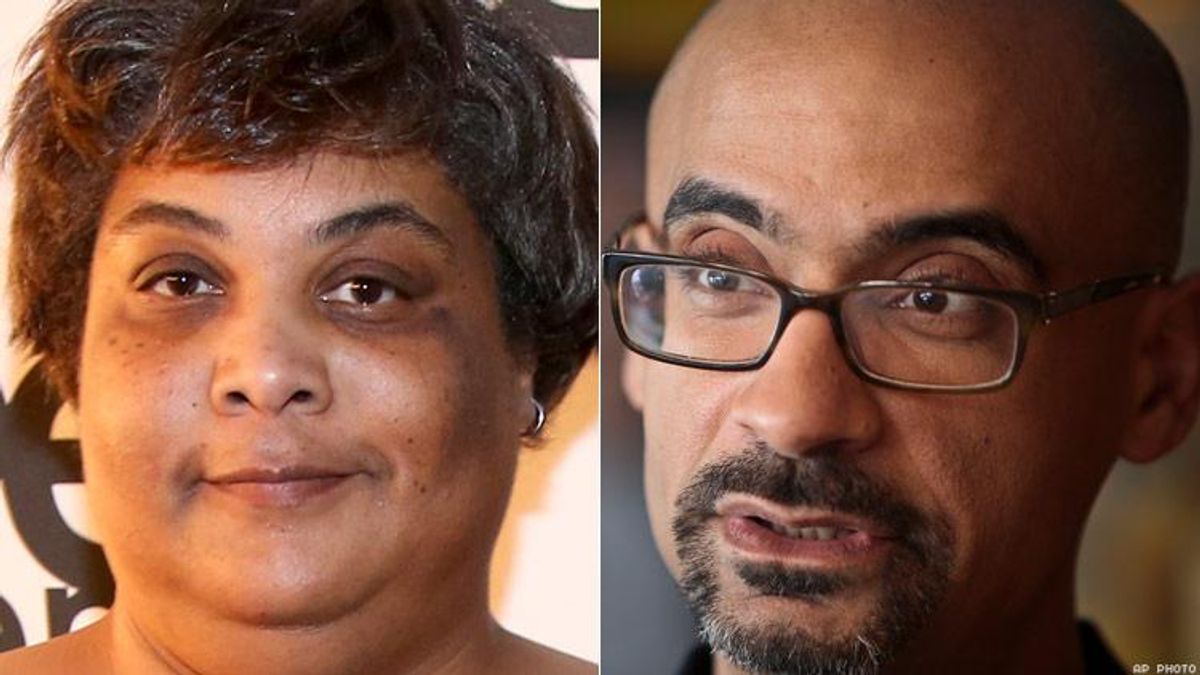Just three weeks after Pulitzer Prize-winning author Junot Diaz wrote a heartrending piece for The New Yorker about having been raped when he was a child, author Zinzi Clemmons (What We Lose) accused him on Twitter of having "forcibly" kissed her when she was an aspiring writer. The tweet led several other women to repsond with their stories of misogynistic treatment by Diaz, who won the prize for The Brief Wondrous Life of Oscar Wao.
Many on Twitter, including Bad Feminist and Hunger writer Roxane Gay, have said they believe his New Yorker piece was his "preemptive strike" intended to mitigate backlash that was certain to occur when accusations of misconduct and misogyny, which many saw coming based on his reputation, were brought to light. Gay said his "explanations don't excuse unacceptable behavior."
Gay's thread explaining that while Diaz's assertion of his sexual abuse as a child is valid and important but doesn't give him a free pass to treat others poorly came in response to Clemmons's tweet, which kicked off a thread of stories about Diaz's problematic treatment of women in his novels and in real life.
Among those who responded to Clemmons was author Carmen Maria Machado, who said Diaz lost it on her during his book tour for This Is How You Lose Her when she dared question what she perceived as his protagonist's "unhealthy, pathological relationship with women."
"He went off on me for twenty minutes," Machado wrote. "He asked me to back up my claim with evidence. I cited several passages from the book in front of me. He raised his voice, paced, implied I was a prude who didn't know how to read or draw reasonable conclusions from text."
Still another young woman author, Monica Byrne, wrote of her encounter with Diaz:
"I was 32 and my first novel hadn't come out yet. I was invited to a dinner and sat next to him. I disagreed with him on a minor point. He shouted the word 'rape' in my face to prove his. It was completely bizarre, disproportionate, and violent. Every point I made -- ABOUT issues women face in publishing -- he made a point of talking over me, cutting me off, ignoring me to talk to the other (male) sci-fi writer at the table, who played along."
That's when Gay dropped in to explain that she'd also been aware of and written about Diaz's history of writing that smacked of misogyny, which she called out in Bad Feminist.
In her thread, Gay said she suspected more stories about Diaz's misconduct will emerge, as the "whispers" about him have been around for years.
One tweeter who said he was a male rape survivor questioned Gay's use of the word "preemptive" in regard to Diaz's New Yorker article, in which he wrote with great candor about his rape at the age of 8 by a man he knew and trusted and his subsequent depression, substance abuse, and inability to enter into healthy relationships. The tweeter implied that Gay's dismissal of the essay as "preemptive" minimized male trauma, but Gay, who has written about her own experience with rape, explained that she believed Diaz was getting ahead of the stories that would eventually come out about him based on the stories she's heard.
Amid the uproar on Twitter about his behavior, Diaz released what appeared to be a conciliatory statement about his behavior via his literary agent:
"I take responsibility for my past. That is the reason I made the decision to tell the truth of my rape and its damaging aftermath. This conversation is important and must continue. I am listening to and learning from women's stories in this essential and overdue cultural movement. We must continue to teach all men about consent and boundaries."
But the revelation of Diaz's misconduct and misogyny is not the only story rocking the literary world. The Swedish Academy has chosen to scrap its Nobel Prize for Literature this year in response to a sexual abuse scandal from which the academy can't extricate itself, according to The New York Times.
The scandal unfolded in early April when Jean-Claude Arnault came under fire for sexually abusing at least 18 women according to the paper Dagens Nyheter. Arnault and his wife, poet and academy member Katarina Frostenson, run a private cultural club called the Forum to which the academy has donated money.
The academy announced it would take a break from announcing a winner in 2018 while it works on rebuilding its reputation and will return next year to award two prizes in literature.


















































































